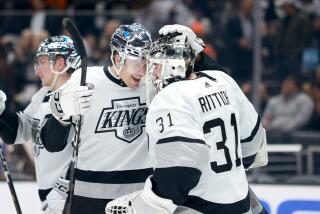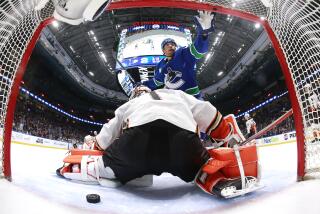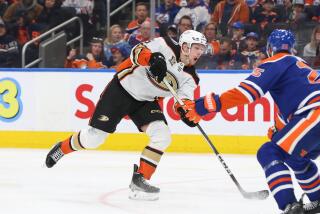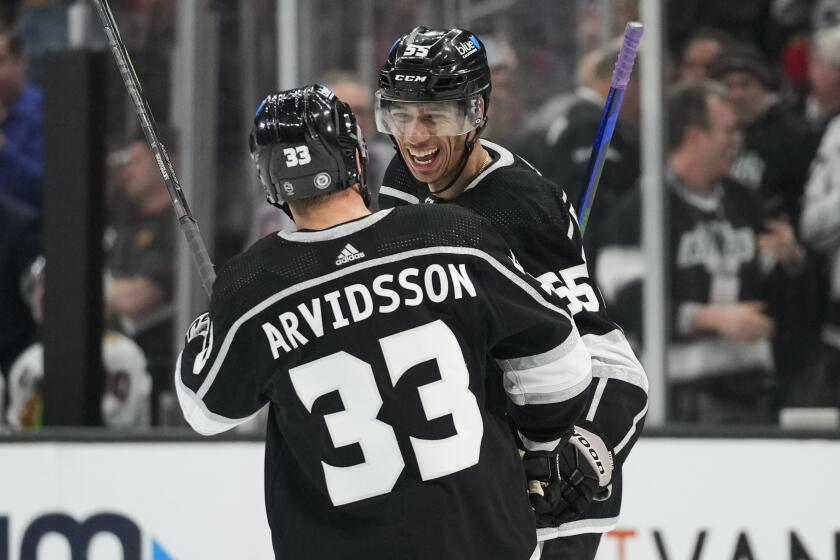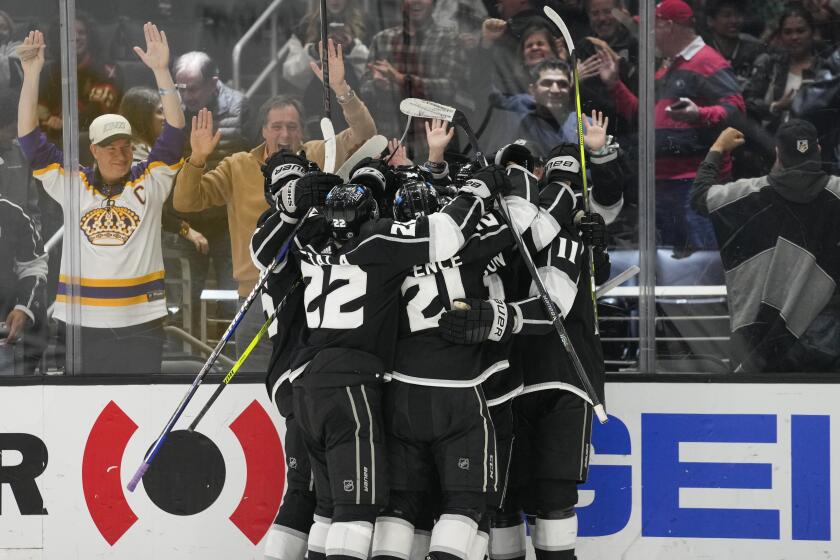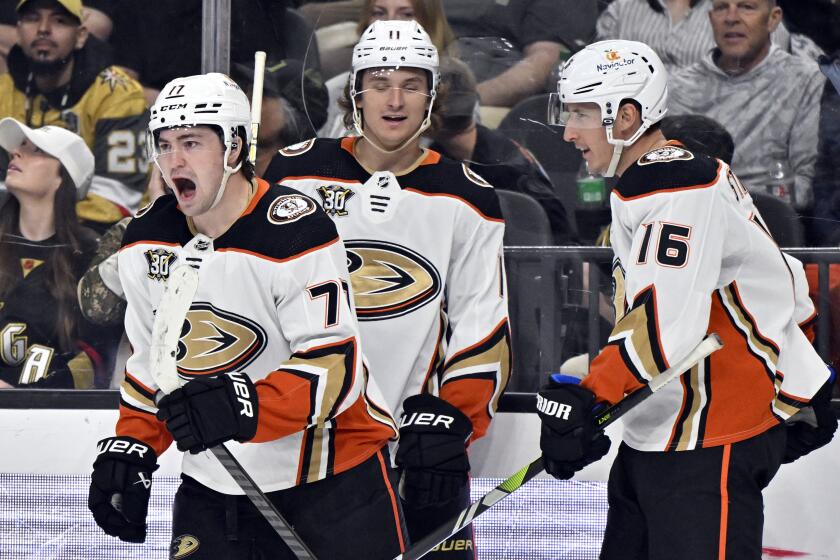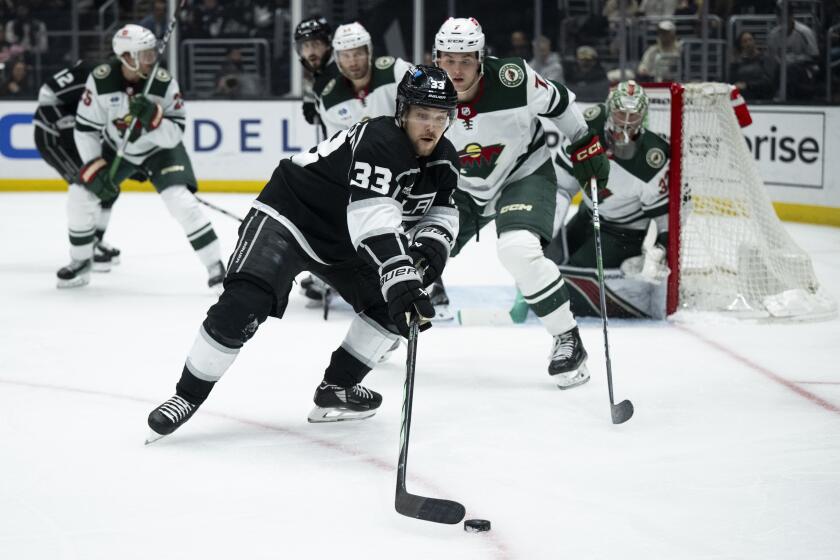Ducks turn up the power during the playoffs
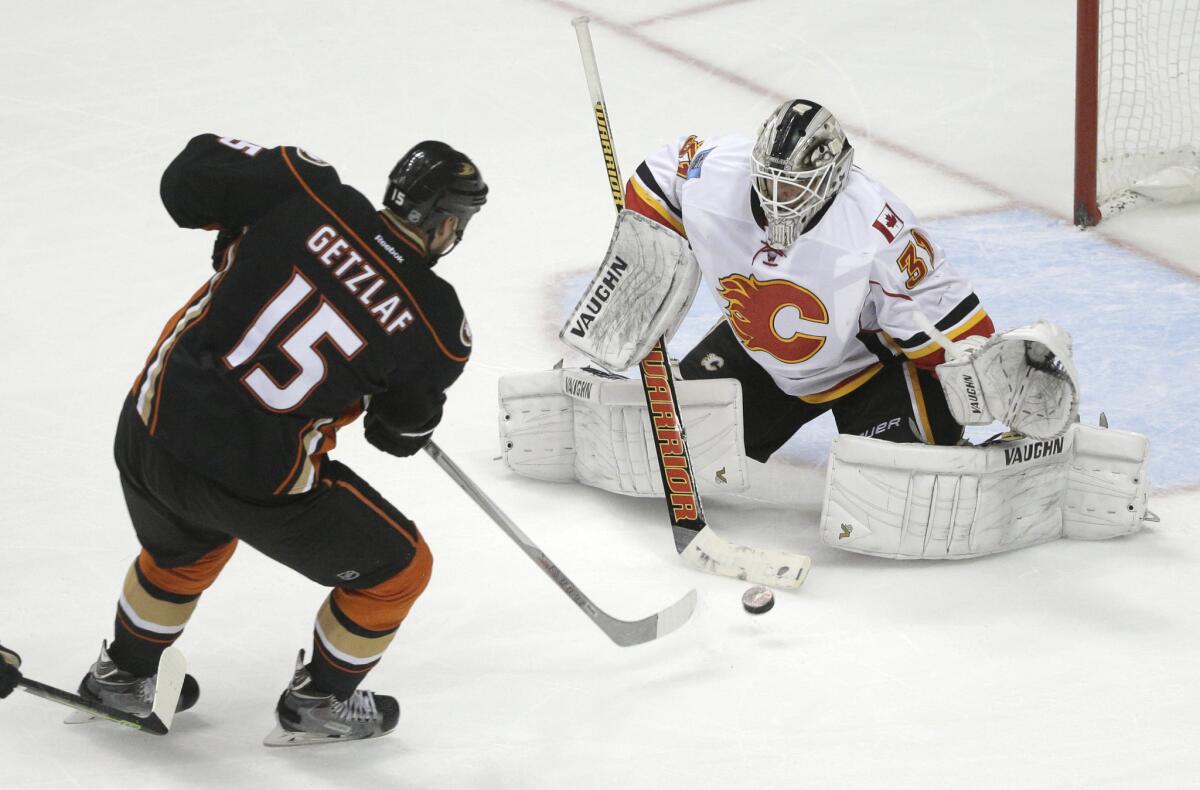
Ducks forward Ryan Getzlaf pushes the puck past Calgary goalie Karri Ramo during Game 2 of the
The most puzzling element of the Ducks’ regular season was how the impressive collection of talent they assembled on the power play was so pathetically unproductive.
Over the 82 games, Anaheim ranked 28th in the 30-team NHL with a scoring success rate of 15.7%. Or maybe their 37 goals in 235 man-advantage situations should be described as an 84.3% failure rate.
In the final 11 regular-season games — despite the ability to put Corey Perry, Ryan Getzlaf and Ryan Kesler on the same unit — the Ducks scored on one power play in 23 chances.
“With too much talent at times, maybe guys think they can make those saucy passes, but they don’t work all the time,” Ducks forward Matt Beleskey said. “It’s not about making the hard play. It’s about making the simple one, and working hard.”
What sounds like an easy adjustment has transformed the Ducks into a power-play playoff juggernaut as they prepare to meet the Chicago Blackhawks in the Western Conference finals, a series that might not begin until Sunday.
In needing only nine games to eliminate playoff foes Winnipeg and Calgary, the Western Conference’s top-seed has scored nine power-play goals in 29 chances and leads the NHL with a 31% success rate.
Why?
“I can’t tell you that,” said Getzlaf, who has two power-play goals after tallying three in the regular season. “Those are secrets. I’ll tell you after the Cup.”
Getzlaf was slyly shrouding the mystery of something he, his coach and teammates insist is the outcome of nothing more than increased attention to detail.
As the stakes heightened, the Ducks found that a deliberate, consistent plan with the extra man pays dividends.
Against Calgary, the Ducks scored two power-play goals in three of the four games after accomplishing that feat only six times during the regular season. Their most recent regular-season game with two power-play goals came on Jan. 11.
“We’re shooting the puck, going to the net, getting tip-ins, rebounds, and that’s what it takes,” Getzlaf said. “Everyone asked me about it going into the playoffs, but we had a different outlook on it than the media did.
“From a numbers standpoint, we didn’t have a great regular season or a great end of the season. But within the locker room, we felt we were generating things — getting scoring chances, doing the right things.”
Part of improvement has stemmed from maintaining chemistry. Instead of placing Kesler with Getzlaf and Perry on the power play, Coach Bruce Boudreau has kept linemates together, namely the first and second units.
The Patrick Maroon-Getzlaf-Perry line has five power-play goals in the postseason. Kesler, Beleskey and Jakob Silfverberg have the other four.
“We’re just doing the right things and it’s coming around at the right time,” Beleskey said. “We just have to be simple — get pucks to the net, get traffic. The more we shoot, the more it seems to create opportunity for us.
“If you look at our goals, they’re not tic-tac-toe passing plays. It’s a couple passes, shot, rebound, working hard at the net.”
Kesler’s second line has combined for 12 goals and 25 points in the playoffs and he said the chemistry works especially well on the power play. For instance, having defense-minded sharpshooter Silfverberg on the ice has helped the psyche of defenseman Hampus Lindholm, who can be more aggressive at the point.
“When we moved ‘Silfvy’ on that unit, it helped us a lot; we started getting shots through,” Kesler said. “That’s what you need on the power play — net presence, guys hungry to score.”
Chicago’s penalty-killing unit ranks 12th among the 16 playoff teams, giving up nine power-play goals in 33 situations (27%). The Blackhawks were 10th in penalty-killing success during the regular season.
“Quick, dangerous, beatable team,” Kesler said.
Follow Lance Pugmire on Twitter @latimespugmire
More to Read
Go beyond the scoreboard
Get the latest on L.A.'s teams in the daily Sports Report newsletter.
You may occasionally receive promotional content from the Los Angeles Times.
